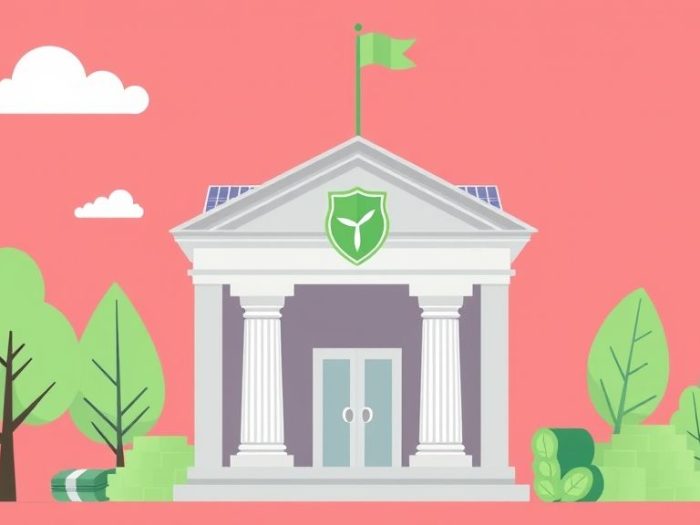For many individuals, banking is a routine part of life. However, where you keep your
money can have significant ethical implications. Traditional banks often invest customer
deposits in industries that contribute to climate change, such as fossil fuels. Ethical
banking offers an alternative, and this article explores the best high-yield accounts
that prioritize sustainability and avoid funding fossil fuels.
Understanding Ethical Banking
Ethical banking involves choosing financial institutions that align with your values.
Key principles of ethical banking include:
- Transparency: Openness about where deposits are invested.
- Social and Environmental Responsibility: Avoiding harmful industries and supporting positive initiatives.
- Community Focus: Investing in local communities and sustainable development.
Why Avoid Funding Fossil Fuels?
Funding fossil fuels through traditional banking contributes to:
- Climate change
- Environmental pollution
- Health hazards
Ethical banking seeks to redirect capital away from these industries and towards a more sustainable future.
Finding High-Yield Accounts with Ethical Banking Practices
Finding high-yield accounts that completely exclude fossil fuel funding can be challenging, as many institutions have some indirect exposure. However, here are strategies and types of institutions to consider:
1. Credit Unions
Credit unions are member-owned cooperatives that often prioritize community development and may have stricter lending policies regarding environmentally harmful activities.
-
Pros:
- Member-owned, focusing on member needs.
- Often reinvest in local communities.
- May offer competitive rates.
-
Cons:
- May have limited online banking features compared to larger banks.
- Membership requirements.
2. Online Banks with ESG Focus
Some online banks are beginning to incorporate ESG (Environmental, Social, and Governance) factors into their operations and investment strategies.
-
Pros:
- Competitive rates and online banking features.
- Growing awareness of ethical banking practices.
-
Cons:
- Requires careful research to verify their ethical claims.
3. Community Development Financial Institutions (CDFIs)
CDFIs are institutions dedicated to providing financial services to underserved communities and promoting economic development.
-
Pros:
- Strong focus on social impact.
- Invest in local communities and sustainable projects.
-
Cons:
- May not always offer the highest interest rates.
- Access may be limited depending on location.
4. Green Banks
Green banks are public or quasi-public financial institutions that invest specifically in clean energy and energy efficiency projects.
-
Pros:
- Directly support the transition to a low-carbon economy.
-
Cons:
- Primarily focused on lending and project finance, not always offering consumer accounts.
Due Diligence: Verifying Ethical Practices
It’s crucial to verify the ethical claims of any financial institution. Here’s how:
- Read Mission Statements: Understand the institution’s values and priorities.
- Review Investment Policies: See if they explicitly exclude fossil fuel investments.
- Check for Certifications: Look for certifications or memberships in organizations that promote ethical banking.
- Contact the Institution: Ask direct questions about their investment practices.
Conclusion
While finding high-yield accounts that completely avoid any indirect funding of fossil fuels may require careful research, several options and strategies can align your banking with your ethical concerns. By prioritizing institutions that value transparency, social and environmental responsibility, and community focus, you can contribute to a more sustainable financial system.
Related Keywords
Ethical banking, sustainable banking, responsible banking, green banking, fossil-free banking, socially responsible banking, high-yield ethical accounts, CDFIs, green banks, divestment.
Frequently Asked Questions (FAQ)
1. What is ethical banking?
Ethical banking involves choosing financial institutions that prioritize
transparency, social and environmental responsibility, and community focus.
2. Why should I consider ethical banking?
Ethical banking allows you to align your money with your values, avoiding
funding harmful industries like fossil fuels and supporting sustainable
initiatives.
3. What are some key principles of ethical banking?
Key principles include transparency about investments, social and
environmental responsibility, and a focus on community development.
4. Why is funding fossil fuels considered unethical?
Funding fossil fuels contributes to climate change, environmental pollution,
and associated health hazards.
5. What are credit unions?
Credit unions are member-owned financial cooperatives that often prioritize
community development and may have stricter lending policies.
6. What are Community Development Financial Institutions (CDFIs)?
CDFIs are institutions dedicated to providing financial services to
underserved communities and promoting economic development.
7. What are green banks?
Green banks are public or quasi-public financial institutions that invest
specifically in clean energy and energy efficiency projects.
8. How can I verify the ethical claims of a financial institution?
Verify claims by reading mission statements, reviewing investment policies,
checking for relevant certifications, and contacting the institution directly.
9. Is it easy to find high-yield accounts that completely exclude fossil fuel funding?
Finding accounts that completely exclude all indirect funding of fossil fuels
can be challenging and requires careful research.
10. What is the most important factor to consider when choosing an ethical bank?
The most important factor is to align the institution’s values and investment
practices with your own ethical concerns and financial goals.



